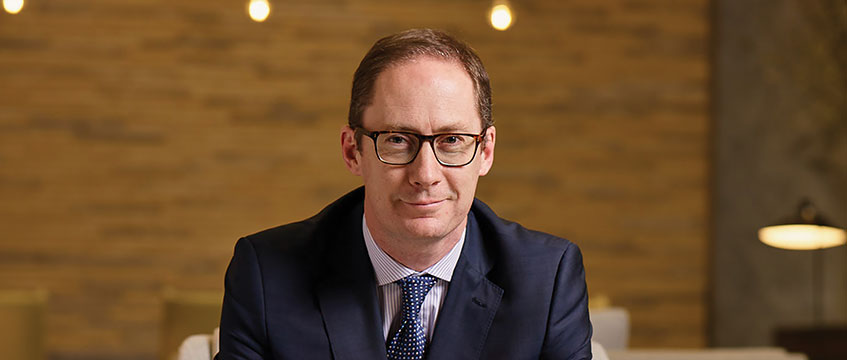Rebuilding a new London infrastructure for the better
COMMENT These have been hugely challenging times for people and businesses across the country, and weeks on from the start of lockdown, the impact of the pandemic continues to be felt right across our communities. My thoughts are with all those who have lost loved ones or who are suffering, through these difficult times.
The crisis has accelerated trends we might otherwise have seen bear out over years into just weeks, forcing dramatic shifts to how we’re all working, shopping and spending time. There’s no doubt these shifts will change people’s outlook, and the destinations we manage, dramatically, and for the long term.
Covid-19 has also radically rewritten the role we see business taking in society, demonstrating, perhaps more clearly than ever, that no person, or organisation, is an island. Our biggest challenges, and their solutions, are collective ones.
COMMENT These have been hugely challenging times for people and businesses across the country, and weeks on from the start of lockdown, the impact of the pandemic continues to be felt right across our communities. My thoughts are with all those who have lost loved ones or who are suffering, through these difficult times.
The crisis has accelerated trends we might otherwise have seen bear out over years into just weeks, forcing dramatic shifts to how we’re all working, shopping and spending time. There’s no doubt these shifts will change people’s outlook, and the destinations we manage, dramatically, and for the long term.
Covid-19 has also radically rewritten the role we see business taking in society, demonstrating, perhaps more clearly than ever, that no person, or organisation, is an island. Our biggest challenges, and their solutions, are collective ones.
Such a sudden and unprecedented reset of our communities, lifestyles and working patterns brings an opportunity to see our world with fresh perspective. I’m sure I’m not alone in valuing our natural environment, fresh air and green spaces more acutely than ever; seeing our interdependencies even more clearly; and missing time spent with friends and colleagues.
As government guidance evolves and we prepare to welcome shoppers, visitors and residents back to the West End, there is a collective opportunity and renewed impetus on us all – as individuals, as businesses and as a society – to rethink how we operate.
Many of the fundamental questions we face as a sector are much the same as before the crisis; namely, how to ensure we look after our environment and our people, how to adapt to changing technologies and working patterns, how to address the increasing pressures on our infrastructure and transport networks, and so on.
Rewriting the rules
But in a world where the old reasons for coming into the city have been shaken (and arguably changed forever) and given that social distancing will put an even greater premium on space, these challenges feel more urgent than ever. There is a great opportunity for us to rethink – an opportunity which we must not let pass.
There’s evidence that this is already happening, with government, the mayor of London, TfL and many London boroughs putting radical solutions on the table to enable socially distanced travel – rewriting the rules for cyclists and pedestrians across the capital to help to keep people safe, while getting our city moving.
As part of this, we, along with other property owners and stakeholders, are working with Westminster City Council and other partners to facilitate a safe and sustainable reopening of the West End, in our case with a focus on Regent Street and St James’s. This includes widening pavements, reducing the number of traffic lanes, increasing street cleaning and introducing new sanitation points, to help ensure people feel safe and secure.
But this is only the beginning. The real opportunity is to harness the improvements in air quality and the environment we’ve seen in recent weeks, by delivering a lasting change in the volume and movement of traffic in the centre of London. That means reducing and consolidating deliveries, restricting commercial traffic to designated time windows and cutting back on personal deliveries.
At the Crown Estate, we’ve been driving this agenda on our own portfolio for some time, but to truly make the most of the opportunity it needs a city-wide effort. Only then will we give local authorities the support they need to continue handing over space to pedestrians, redressing the balance that has become so lopsided and helping to enhance the experience for all those moving around the city.
A collective enterprise
The complexity of rebuilding our destinations in an increasingly volatile world isn’t to be underestimated, but tackling these issues and helping our retailers and businesses to adapt to their new normal will be vital, both to our continued success and theirs. It will require us to pull together, embracing new partnerships and upending current thinking. That means a need for much greater collaboration, sharing of risk and pooling of data and insights. We have to move from a series of cottage industries to a collective enterprise.
So as we work to reopen and rebuild our places, let’s rebuild for the better – creating a cleaner, greener, safer West End which works for us all.
James Cooksey is director of central London at the Crown Estate











